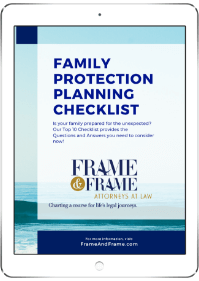FREE LEGAL GUIDES
Guide to Life Estate Deeds

If you own real estate in Maryland, it is important to consider and make informed decisions about these types of assets. If you wish to pass on real estate to children or other loved ones, a life estate deed may be a tool worth considering. Many people have questions about life estate deeds in Maryland and whether this is a viable option for your situation.
A life estate deed can be a valuable tool, for many people, to help you legally pass your real estate property assets to heirs. Life estate deeds may help you and your family avoid the probate process, while also preserving tax benefits. There are many reasons to consider a life estate deed and proper planning is key. Planning can help alleviate family disputes, minimize taxes, and allow your loved ones to transition real estate quickly and easily.
A life estate deed is also a legal instrument that may be used as part of an overall estate planning process. Your real estate assets are typically just one investment that may need to be considered. Bank accounts, 401k’s, vehicles, family heirlooms, are all items that you’ll want to discuss as part of your estate planning process. Life estate deeds can also be an important tool for long-term care or Medicaid planning.
This free guide provides answers to five common questions about life estate deeds in Maryland including:
- What Is a Life Estate Deed?
- Who are the Parties in a Life Estate Deed?
- What is a Life Estate Deed with Full Powers?
- What is a Life Estate Deed Without Powers?
- Can a Life Estate Deed Help You Avoid Capital Gains Tax?
Your free guide will help you learn about life estate deeds in Maryland and the benefits of evaluating your will or estate plan in conjunction with establishing a life estate deed. Frame and Frame Attorneys at Law has been providing legal guides to families in our community for over 70 years.
Do you have more questions?
Contact the experienced attorneys at Frame & Frame to schedule a private consultation to discuss your concerns.




